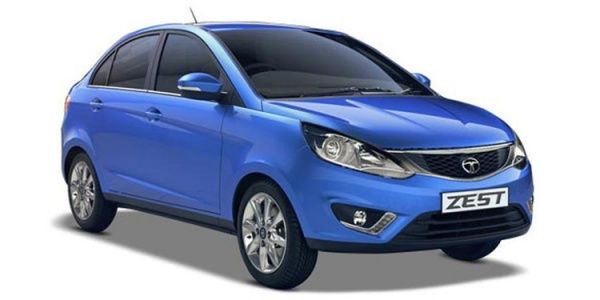NEW DELHI: Tata Motor’s compact sedan Zest with two airbags has received four stars from Global NCAP based on the crash test results done by the UK-based vehicle safety group.
The Mumbai-based auto maker introduced structural improvement to the entire Zest range after Global NCAP had given zero and one star to the adult occupant and child occupant protection, respectively, while crash testing the vehicle’s standard non-airbag version.
As has been the case with other manufacturers, Global NCAP offered Tata the opportunity to test another version of the Zest with more safety features.
Accepting the opportunity, Tata introduced a structural improvement to the entire Zest range while Global NCAP tested the new version with optional airbags.
“The Zest with two airbags and two pretensioners showed very substantial improvements, and together with seat belt reminder in driver seat, the car achieved an impressive four star score in adult occupant protection,” Global NCAP said.
Tata Motors have announced that the improvements made to the structure will be brought to the entire vehicle range, for both airbag and non-airbag versions, Global NCAP said.
“Tata has shown how they can dramatically improve the safety of the Zest. It is encouraging to see a major Indian brand improving the safety of their models,” Global NCAP Secretary General David Ward said.
Global NCAP strongly encourages Indian consumers to opt for the much safer four star rated option, he added.
“We also urge Tata to consider making the two airbag version of the Zest, their basic model,” Ward said.
When contacted Tata Motors Head-Advanced and Product Engineering Timothy Leverton told PTI that the company has applied its learnings from the Global NCAP towards a progressive framework in its journey on improving safety and attributes in its vehicles.
“That the Zest has been awarded a 4-star rating by Global NCAP is an endorsement to our commitment towards offering class leading levels of vehicle safety to our customers and stands as a testament of our engineering capabilities,” Leverton said.
Tata Motors was the first Indian automobile company to start an in-house crash test facility in August 1997, he said.
“Today, we have a team of 150 experienced safety experts in India, working at our in-house crash test facility with advanced simulation tools to optimise the safety performance of our vehicles,” he added.
In its latest round of tests of the mini four-wheelers recently, Global NCAP gave one-star rating to Bajaj Auto’s quadricycle Qute.
Earlier this year, as many as five popular passenger vehicle car models in India, including Maruti Celerio, Renault Kwid, Mahindra Scorpio and Hyundai Eon, had failed crash tests with zero star rating from Global NCAP. (AGENCIES)
Trending Now
E-Paper


